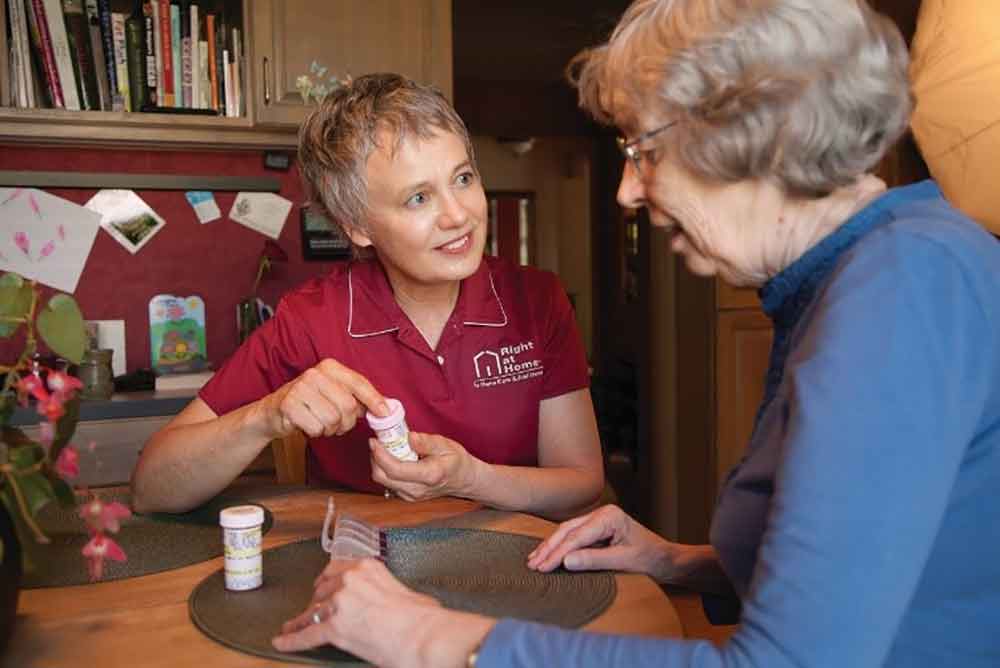

Polypharmacy in the Elderly
Medications play an important role in improving the health and preserving the independence of seniors today. Medications help control many health conditions older adults commonly experience, such as heart disease, arthritis, diabetes, high blood pressure, osteoporosis, chronic pain, and eye problems. “As a society, we have become reliant on pharmaceuticals to help us attain a longer and higher-quality life,” noted Dr. Sandra L. Kweder, deputy director of the U.S. Food and Drug Administration. “It’s a wonderful success of Western medicine.”
But medication management also is a major health challenge for older patients. Medications or combinations of medications can cause side effects, such as dizziness, depression, digestive problems and even confusion that might be mistaken for dementia. The side effects can raise the risk of falls, car accidents and other injuries. “The goal should be for each of us to access the benefits, but respect that medicines are serious business,” said Dr. Kweder. “To get the most out of them, you should take them with great care and according to directions.”

Managing medications in our later years can be challenging for several reasons:
The top challenge is that seniors take a lot of medications—which doctors and pharmacists call “polypharmacy.” University of Michigan experts looked at the data of people on Medicare Part D (prescription drug plans) and found that these seniors take an average of 4.5 drugs—and many take 10 or more. With each new drug, the chance of side effects and interactions increases. It’s not uncommon for a doctor to prescribe a new drug to treat the side effect of another!
Older bodies process substances differently. As our digestive system, liver and kidneys begin to operate less efficiently, a drug can stay in the body longer, so we might need less of it. We might experience new side effects from a drug we’ve been taking for a long time.
Some drugs may be inappropriate for older patients. A 2020 study published in the Journal of the American Geriatrics Society noted that as many as one-third of seniors are taking medications that aren’t suitable for people their age.
To limit the negative effects of polypharmacy, older patients should be partners in their own care. Here are ways you can make that team effort work:
Get a medication review. Today’s seniors are likely to have a number of healthcare providers. Medication problems often begin when one doctor prescribes a drug and other providers don’t know about it. Have a single doctor or pharmacist evaluate all the medications you take. Bring a list or bring in all your pill bottles. Include prescription drugs, over-the-counter products and supplements. Always keep the list up to date. (People on Medicare Part D should know that their plan may offer a free, in-depth review for enrollees.)
Take medications as directed. Take the right amount, at the right time, with or without food as recommended. Many medicines need to be taken continuously and at the correct interval to work properly. Some should not be taken with alcohol or certain foods. And never discontinue a drug without asking your doctor, even if you start to feel better.
Be alert for side effects. When you pick up a prescription, you usually receive an information sheet that contains a list of all possible side effects of the drug. Review the information before beginning the drug. Otherwise you might chalk up any effects to illness, to “just growing older,” even to memory loss. You should also make your healthcare provider aware of any side effects you experience that are not listed on the information sheet. These changes could be a result of polypharmacy.
When a doctor prescribes a new medication, ask questions. “Sometimes, especially if you’re seeing multiple providers, certain questions can fall through the cracks,” said Dr. Kweder. “But there is no such thing as a stupid question about medicine.” Find out what the drug is for, how to take it, and how long to take it. “Seniors might start a medication, then just keep on taking it—even if, in some cases, it is no longer necessary,” Dr. Kweder warned.
Create a system for keeping track of medications. This could be anything from low-tech solutions like calendars and day-of-the-week pillboxes to smartwatch and phone apps, and smart pill bottles that remind you to take a medication—or that you’ve already taken it.
Use a single pharmacy if possible. When the pharmacist has a record of all the medications you take, this makes it easier to spot any possible “red flag” combinations that could cause a bad interaction.
Don’t hesitate to bring up the cost. Today, the high price of many prescription drugs leads some seniors to split pills, skip doses or fail to fill a prescription. If a drug is costly, or is not covered by your insurance, ask the doctor if there is a generic or less expensive alternative.
Talk to the doctor about alternatives to medications. For certain conditions, lifestyle changes such as increased exercise and improved diet, or physical treatments such as physical therapy, can be beneficial and can reduce the need for medications.
Doctors might recommend “de-prescription” of a drug if it is no longer needed, if the benefits do not outweigh the risk of harmful side effects, or if lower-risk treatments are available. But it is very important to make these decisions only with the advice of your healthcare provider. Just as you should never take a prescription medication without your healthcare provider’s recommendation, never discontinue taking a drug without discussing it first.
Home care can help
Family members can help and encourage senior loved ones to follow the steps above. Professional in-home care also is a valuable resource for successful medication management. Nonmedical home care professionals can provide transportation to the pharmacy or pick up prescriptions, help clients keep track of medications, and be alert for any signs of side effects. Skilled nursing services, including the administration and management of medications, can also be provided in the home.
Professional in-home care can be an important part of a senior’s all-around health and well-being. Right at Home caregivers support the physical, medical and emotional needs of older adults. Find your local Right at Home and ask for a care consultation today.
Latest Resources for Seniors
Featured article








